Avorek contains Diclofenac Potassium, a fast-acting NSAID used for the relief of pain, swelling, and stiffness caused by different musculoskeletal and inflammatory conditions. It is commonly prescribed for back pain, arthritis, migraine attacks, menstrual cramps, dental pain, and sports injuries. By blocking prostaglandins (chemicals responsible for inflammation and pain), Diclofenac helps restore mobility and comfort in daily activities.
Primary Uses
Avorek tablets are prescribed for:
-
Rheumatoid arthritis and osteoarthritis
-
Ankylosing spondylitis (spinal arthritis)
-
Back pain, sprains, strains, dislocations
-
Migraine headaches
-
Periarthritis (frozen shoulder), tendinitis, tenosynovitis, bursitis
-
Acute gout attacks
-
Post-operative or post-dental pain and inflammation
-
Pyrophosphate arthropathy and related complications
How to Use
-
Take orally with a full glass of water.
-
Do not chew, crush, or break the tablet.
-
Best taken after meals or with milk/antacids to reduce stomach irritation.
-
Use exactly as prescribed by your doctor.
Expert Advice
-
Take with meals to reduce gastric discomfort.
-
Avoid alcohol, as it increases risk of stomach bleeding.
-
Drink sufficient fluids to avoid dehydration.
-
Do not self-medicate or exceed the prescribed dose.
-
Stop medicine and inform your doctor if you experience unusual bleeding, severe stomach pain, or black stools.
Side Effects
Common side effects:
-
Nausea, indigestion, diarrhea or constipation
-
Flatulence, stomach upset
-
Headache, dizziness, sleepiness
Less common but serious:
-
Stomach or intestinal bleeding
-
Severe allergic reactions (rash, swelling, breathing difficulty)
-
Increased risk of heart attack or stroke in patients with pre-existing heart disease
Warnings & Precautions
Pregnancy: Avoid, especially in the third trimester. Consult your doctor before use.
Lactation: Excreted in breast milk; consult your doctor.
Liver: Dose adjustment may be required in liver disease.
Kidneys: Use cautiously in patients with kidney impairment.
Driving: Avoid driving if dizziness or drowsiness occurs.
Alcohol: Avoid completely, as it increases risk of bleeding.
Patients with a history of ulcers, gastrointestinal bleeding, heart disease, liver/kidney impairment, or asthma should use with caution. Long-term use requires periodic monitoring of liver function and blood tests.
Contraindications
Do not use Avorek if you have:
-
Allergy to Diclofenac or other NSAIDs
-
Active stomach/intestinal ulcer, bleeding, or perforation
-
Severe kidney or liver disease
-
Congestive heart failure
-
History of NSAID-related gastrointestinal bleeding
-
During the third trimester of pregnancy
FAQs
Q: Can this medicine be used for backache and menstrual cramps?
Yes, Diclofenac Potassium is often prescribed for both conditions under medical supervision.
Q: Does it increase bleeding risk in dental extraction?
Yes, it can prolong bleeding. Inform your dentist before any dental procedure.
Q: Is it safe with hypertension medicines?
Diclofenac may reduce the effectiveness of some anti-hypertensives. Always inform your doctor if you are on blood pressure medication.
Q: Can it cause heart problems?
In long-term or high-dose use, Diclofenac may increase the risk of heart attack or stroke, especially in patients with heart disease.
Doctor’s Review
“Diclofenac Potassium remains one of the most effective NSAIDs for controlling acute musculoskeletal pain, arthritis flare-ups, and menstrual cramps. It provides rapid relief but must always be used with caution in patients with gastric ulcers, kidney disease, or cardiac problems.”
— Prof. Dr. Samina Ghaznavi, MBBS, FCPS
Disclaimer
This document is intended for product and educational information only.
It is not a medical prescription. Please consult a qualified physician before starting, changing, or discontinuing Avorek (Diclofenac Potassium).

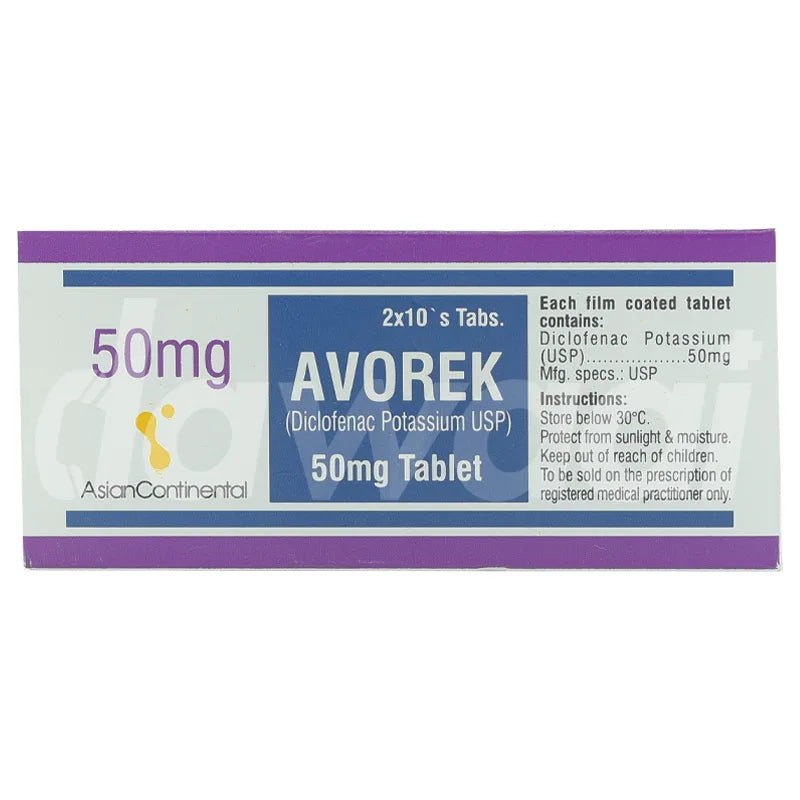
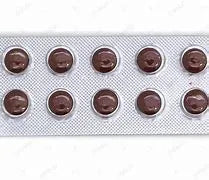
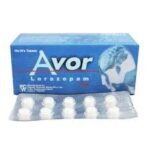


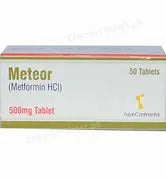

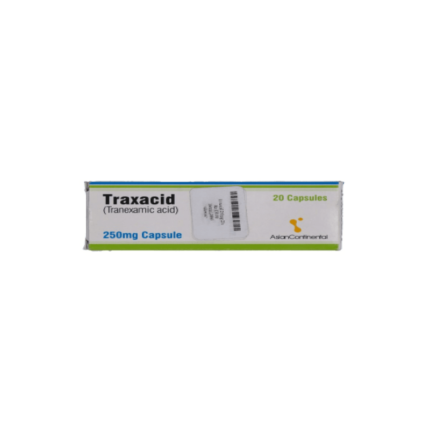
Reviews
There are no reviews yet.